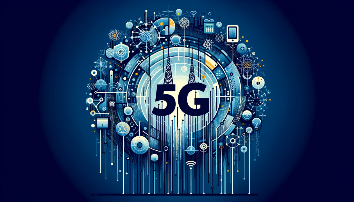
The social value of 5G refers to the potential benefits and impacts of the fifth generation of wireless technology on society. Some of the key social values associated with 5G include:
Enhanced connectivity: 5G enables faster and more reliable connectivity, which can improve communication and access to information, bridging the digital divide and promoting social inclusion.




Improved healthcare: 5G can support remote healthcare services, such as telemedicine, and enable the use of medical devices that require high-speed data transfer, improving healthcare outcomes and access to medical services.
Increased productivity: 5G can enhance productivity by enabling faster data transfer, reducing latency, and supporting more devices, which can lead to increased efficiency and competitiveness in various industries.
Smart cities and communities: 5G can support the development of smart cities and communities by enabling the deployment of IoT devices, smart grids, and other technologies that can improve public services, transportation, and urban planning.
Education and skills development: 5G can support online education and skills development by providing fast and reliable access to educational resources, enabling remote learning, and promoting digital literacy.
Environmental sustainability: 5G can support environmental sustainability by enabling the use of IoT devices to monitor and manage energy consumption, reduce waste, and promote sustainable practices.
Public safety: 5G can support public safety by enabling the use of emergency response systems, such as those used in natural disasters, and providing critical communication services for first responders.
Economic growth: 5G can support economic growth by enabling new business models, creating new opportunities for entrepreneurship, and increasing competitiveness in various industries.
Social cohesion: 5G can support social cohesion by enabling people to connect with each other, access information, and participate in community activities, promoting social inclusion and reducing social isolation.
Accessibility and inclusivity: 5G can support accessibility and inclusivity by enabling people with disabilities to access information, services, and opportunities, promoting equal access and participation.
However, there are also potential social challenges associated with 5G, including:
Digital divide: The deployment of 5G may exacerbate existing digital divides, as not all communities may have equal access to 5G infrastructure and services.
Job displacement: The automation and efficiency gains enabled by 5G may lead to job displacement in certain industries, particularly those that rely on manual labor.
Cybersecurity risks: 5G networks may be vulnerable to cybersecurity risks, which can compromise personal data and national security.
Health risks: There are ongoing debates about the potential health risks associated with 5G, including the impact of radiofrequency radiation on human health.
Dependence on technology: The increased reliance on 5G technology may lead to a decrease in face-to-face interactions and deepened social isolation.
To maximize the social value of 5G, it is essential to address these challenges and ensure that the benefits of 5G are equitably distributed and accessible to all members of society. This can be achieved through:
Inclusive deployment: Ensuring that 5G infrastructure is deployed in a way that promotes equal access and affordability.
Digital literacy: Promoting digital literacy and skills development to ensure that people can effectively use 5G technologies.
Regulatory frameworks: Establishing regulatory frameworks that promote competition, innovation, and public interest.
Cybersecurity measures: Implementing robust cybersecurity measures to protect personal data and national security.
Research and evaluation: Conducting ongoing research and evaluation to assess the social impacts of 5G and identify areas for improvement.


Leave a Reply